My watch said noon. That meant that Wulff would be at his bench tying flies, the one time he was not to be disturbed. Still, I was on an errand for someone I thought was both prettier and more valuable than even one of Wulff’s most beautiful and effective creations. I’d much rather take his brow-beating than to explain to Rosalita why she had to sit in the hoosegow one minute more than necessary.
I looked at the knocker below the brass name plate reading “Theo Wulff, Esq.,” whatever that means, and the sign that said “Do Not Disturb 12-3,” which didn’t leave a lot of time if you think about it, since he fished from dawn until the fishing cooled off, took an early lunch during which he would not talk business, always had dinner at six – also non-business, and then grabbed the evening hatch most nights, too.
I raised my hand, thought better of it, and went in without knocking. Wulff was back-to me at his tying desk, which faced out a window down across the meadow to the river. He was surrounded by bits of feather, fur, and thread. And books. Books piled everywhere, three of them opened on the window sill and leaning against the pane so he could look at them. He was just setting down a flute of Chuckanut Helles, the only beer he likes more than his own.
“Yes, Abel?”
“How did you know it was me?”
More Like This
“The only person who walks in here without knocking is you; and certainly you are the only person with the temerity to walk in here without knocking during my tying hours.” He spun on the old piano stool he used and flipped up his magnifying spectacles to look at me. “I assume this is good?”
I studied him for a moment, a bit struck by his good mood. Either he had a tricky problem on the vise, the morning fishing was spectacular, or the evening fishing promised to be so. “Well good as in thorny; not good as in there has been a death up at the lodge.”
He took a sip of beer. “Yes, not good.” He waved to the sofa. “Would you like a beer while you tell me about it?” Without waiting for an answer, he got up and walked over to the tap on a small refrigerator to pull me a neat glass of the golden lager with a dense head that looked like you could ski on it. I took the first sip and, as always, I was transformed. “It seems so simple, but there is something about this beer…”
“Indeed. The very quintessence of umami on the back of the tongue, just on the side, like buttered toast. If only I could isolate this in my own beer…” He looked at me, vaguely ridiculous with his magnifying glasses flipped to their ‘up’ position on his forehead, like a tiny pair of Mickey Mouse ears. “I hope that your palate is properly lubricated to spring forth this tale which could not wait?”
“It’s a bit of a tale.” He held up one finger, refilled his own glass, and settled back on his stool.
“Andy, up at the lodge called me. One of the guests died, looks like poisoning. Sergeant Braster is up there creating all kinds of ruckus. They took Rosalita in for questioning, and nobody can find Jerry Crowley.”
Instantly I had his attention. He was on the edge of his stool to the point I feared he and it might tip over. “Spill it, and leave nothing out.” I should’ve known. If there was one woman in the world that he cared about, it was Rosalita. Ever since Crowley had hired Rosalita to be his cook up at the lodge, Wulff had been taking most of his dinners up there, and they spent hours in the kitchen discussing her native Dominican cuisine. Slowly he was beginning to rub off on her and they were creating some sort of fusion style together. Probably the most time he had ever spent with a woman since his mother. If he ever had a mother.
Theo Wulff is a strange duck. He comes off like a show dog, but you have the feeling he roamed the streets like his namesake at one point. I asked him about that once, if he was any relation to the late, great Lee Wulff, perhaps the best fly fisherman who ever lived. “By blood, tangentially,” he’d said. “By inclination, directly.” And that was the end of that.
“Sometimes I ‘guide’ for Jerry.” I said, making air quotes. “Which means I get a free drift ride, he gets a hand, I shoot some video and get the hero shots, and when I get tipped I kick it back so he makes an extra C-note or two per day.”
“I am aware,” he said waving his hand as if to say “get on with it.”
“Context, okay? So three days ago, Crowley asks me last minute if I can help him out. Asks me if I can come to dinner and spend the night in case he needs any help up at the house. I figure it must be a big group or a long trip, and of course I never pass on Rosalita’s grub, but when I get there it’s just two other guys. Two dudes from the Dominican Republic.” Wulff’s eyebrows went up. “Yeah, some cacao exporter and his sidekick. At dinner these two looked like they were going out tango dancing. I don’t know if you can put a crease in waders, but that is the impression they gave. Very high class, but very thuggish at the same time.”
“I know the type.” As much as I wanted to hear that story, mine took precedence. He was always dropping these tidbits at the most inopportune time, and it never seemed appropriate to follow up on them later.
“Anyway, Crowley is real jittery of these guys. And the weird thing is, the main dude, Negro, he’s all chatty and acts like he knows Crowley from way back.”
“Negro,” he said, pronouncing it “nay-roh” and rolling the R with perfect annunciation, “that means black. That’s Dominican slang for ‘evil.’” Again, how does he know this stuff?
“So we have dinner, and this Negro guy wants to go out and fish. His sidekick, some muscle named Tibaud, flew all the way up from the Dominican and says he wants to take it easy, so Crowley hands over one of those custom fly wallets he gives all of his dudes, and I take Negro down to the run across from the lodge to sort him all out and spend a little quality time with him. He had a gorgeous custom Burkheimer rod that cost more than my truck, but hadn’t fished it for a while and wanted to knock the dust off of his casts so he could fish well the next day. Turns out that wallet was full your latest creations. We fished until dark.”
“After, the guy is looking for some action, and I tell him it’s going to be boring as hell, but he insists, so we go to the Buck and Thorn. It was as slow as promised, and I had him tucked in by midnight.”
Wulff narrowed his eyes and tilted his head as if he would ask me something, but he didn’t, so I went on. Nevertheless, he had me on the defensive. I ran my hand through my hair. “Well, you said ‘leave nothing out’ so I thought I would start at the front.”
His arms were crossed. “Of course, from the beginning.”
“Next day, we float the middle section from High Bridge down. Lots of run off, low visibility, so it’s slow, but it starts clearing up.”
“We stopped for lunch and the two guys are fishing while we set up camp. I grab my camera, that Canon DSLR that shoots both stills and video, and start just taking random shots of the set-up, casting, scenery – you know the kind of stuff in case you don’t catch a fish. Nothing is happening so I alternate between helping with lunch and taking shots. Tibaud comes up to camp breaks out a bottle of rum, and I decide to take my leave and to see what I could do for Crowley, but before I get to him, suddenly, there is a bunch of hooting and hollering down on the beach. Negro is into a big fish, but solid. I run down and I’m filming away like Cecil B. DeMille wanting to get the whole thing down. I’m tight on the fish, I’m tight on him, I’m panning. Negro has done this before and was playing the fish in. I’m paying no attention to Tibaud, but just as Negro is beaching the fish, Tibaud runs over and before I can even stop him, pulls out a 9mm, and shoots the fish! Negro walks up and tosses a native steelhead right there on the rocks, all proud of himself and beaming and says ‘Lunch!’ A beautiful 15-pound native hen. I could’ve cried right there.” Wulff’s eyes went wide.
“I know, right? I run up with my fists all balled up and start to give him a piece of my mind, saying ‘What part of catch-and-release don’t you understand?’ He might be Crowley’s client, but I’d do the same to any other jackass on the river. But Crowley, just puts his hand on my arm and thanks him. Negro struts back to the river and I look at Crowley like he’s insane. He could lose his guiding license six ways from what just happened and then what is he going to do for a living? You know what Crowley does?”
“Do tell,” said Wulff taking a sip of his beer.
“He takes out a knife to gut the fish and points to that scar that runs the length of his face just along the hairline.”
“I always wondered about that, but a gentleman never asks.”
“Well, I never got the chance. The chulos came up for lunch, they were in a fine mood, and it seemed best to leave it that way. We finished up and packed up, when all of a sudden Negro starts complaining of cramps. Doesn’t look so good, starts throwing up. Then, bloody diarrhea. I mean this guy is going down fast. We loaded him into the boat but he became delirious and wouldn’t stay put. Of course, we are on the river, and short of helicoptering him out, you gotta take the ride to the takeout, or hike out to the road. When he went into convulsions, we left the boat and carried him out. It was that bad, like some demon inside him was eating its way out.”
“What did you have for lunch?” asked Wulff, and here I am thinking, man, this guy has stones. It’s always about the food with him. In a man with less genius the trait would be so off-putting as to make his friendship totally unappealing.
“Well Rosalita always makes a big dinner and packs leftovers. Nobody ever complains.”
“I’m sure they don’t,” said Wulff with no small amount of chest puffery, him having taken her under his wing and mentoring her culinary development. “Leftover what?”
“Venison and mushroom risotto. That and the steelhead grilled on the side. I’m sure Crowley wanted that fish gone as soon as humanly possible. However, I fail to see the importance in the noon-time fare.”
“Well, we are investigating a poisoning.” I suppose even I should’ve followed that one along, had I not been blinded by my prejudices of Wulff’s peccadillos. “Did you watch him prepare the fish?”
“Actually, I did it for him, distasteful as it was, it kept me from hurting the guests. The whole time I’m doing it, I’m looking around like the game warden is going to be floating around the bend at any moment.”
“Understandable. So you had leftovers from the night before, which everybody ate, and a fresh fish, which everybody ate. Very curious.”
“I’m offended you would think either Jerry or I would ever touch wild steelhead. It’s plain dishonorable.”
“Of course. So two people ate the steelhead. And the rum?”
“It was neither offered, nor desired.”
“They both drank from it?”
“They both had cups when I came back from cleaning the fish. I can’t tell you what was in them.”
He snapped his fingers. “You say you have video?”
“What do you expect to get out of that? You think he got poisoned by the water? I only wish that he had.”
“I don’t have any expectations. Expectations are the antithesis of observation, and observation is the crux of abduction.”
“Abduction? Don’t you mean deduction?”
He shook his head. “One of the saddest misconceptions of our profession, dribbling down from Sherlock Holmes. His deductions were in fact syllogisms that only worked as a literary device because as preposterous as they were, Conan Doyle simply decided to make them true. Thus, the reader is fooled to think the conclusions are brilliant, but of course they are rubbish by any rigid logical standards. In fact, Watson’s biggest role is to take the same facts and make the wrong deduction, then get corrected by Holmes, further re-enforcing this trick. In truth, these leaps of intellect by Holmes have no bearing on the real world. Fascinating really that so much literature is based on this error. Such sloppy thinking for a purportedly logical undertaking. And yet millions of readers have been entertained by it for a century in dozens of stories.”
I was going to remind him of our time crunch, but in such moods there is no stopping him. I pulled out my tablet and started to load the photos and videos I’d shot over the last couple of days.
“Do elucidate.”
“In the Hound of the Baskervilles, for instance, there is an exchange in which Sir Henry Baskerville receives an anonymous letter composed of pasted up letters inside a hand-lettered envelope. Of course, Holmes knew exactly which paper the letters were cut from by the font. Memory palace and all that. Never mind that the criminal would take great pains to hide his handwriting on the note only to use his very own hand on the envelope.” He closed his eyes and began to speak as if reading off of the page, an annoying habit that he had and doubly so since I knew he was in fact looking directly at the book in his mind. “‘The address, you observe, is printed in rough characters. But The Times is a paper which is seldom found in any but in the hands but those of the highly educated. We may take it, therefore, that the letter was composed by an educated man who wished to pose as an uneducated one.’”
“Deductive reasoning, or deduction, starts out with a general statement, or hypothesis, and examines the possibilities to reach a specific, logical conclusion using syllogisms. If, and only if, A is true and B is true can C be true. But not all syllogisms are true, there are many ways to construct them to fallacious ends. In this case, A is that the Address is Rough Printed; B is that the note is comprised of letters from a newspaper read by educated men; C is that therefore an educated man is posing as an uneducated man, but what do A and B, actually have to do with each other? Nothing. It is a fallacy. It appears the premises are related, but they are not. You could make any number of conclusions from this flumadiddle. Wouldn’t it make more sense that the uneducated butler of a wealthy man grabbed the first printed matter at his disposal to write the note and slipped up by then hand-addressing the envelope? Or you could say ‘Doctors have terrible handwriting. The address was poorly written. Therefore, the letter was addressed by a doctor.’ Don’t you see? You can make any connection you want. There is no way to test the validity of the premises, you just write them in when you ‘solve’ the case. Preposterous rubbish.”
“On the other hand, abductive reasoning usually starts with an incomplete set of observations and proceeds to the best possible explanation for the group of observations. In Abduction we make and test hypotheses using the best information available. This often requires making an educated guess based on observation for which there is no clear explanation. This is what Holmes was actually good at, making those leaps to the only possible solution.”
I recite my only Holmes quote. “’Once you eliminate the impossible, whatever remains, no matter how improbable, must be the truth.’”
Wulff made a moue. “Yes, for literature, which surely we are not. Abductive reasoning is useful for forming hypotheses to be tested. We use abduction when we are scouting new water, trying to find fish and determine which fly they will eat. We know certain fish like certain conditions, so we look for those conditions. We know that in certain circumstances they eat certain things, so we present that fly to the most likely lies for that species. If that does not work, we change tactics: looking in a different place or trying different flies. We are constantly forming and testing hypotheses until we catch a fish.”
“You should write a monograph on the subject,” I quipped, only half listening. I handed over the tablet.
“It is not my job to disabuse the gleefully ignorant. Only to guide the dangerously ignorant who may directly influence me.”
He watched the videos for some time in silence, muttered “Interesting,” then watched it a couple of more times. Then I set him up to watch a slide show of the images. After some time, he handed it back. “Yes, that was productive. Was that my fly?”
“Yes, one of the new ones. Apparently they are as effective as advertised.”
“Yes, apparently so,” he said, but he was looking out the window and his mind was far away.
“So, is adduce a word?”
“Yes, but it is the wrong word for what we do to solve crimes. Adduce means to offer as example, reason, or proof in discussion or analysis. ‘We should do it this way because this has worked for a number of other people in similar circumstances’ and such. For example, we caught a fish on this drift with this fly last week, so let’s start there. While deduce means to use logic or reason to form a conclusion or opinion about something. Based on what people had done before, I deduced somethings about steelhead and incorporated them into a fly, which represents a hypothesis we can test.”
“So we deduce, but in doing so we are actually using abductive logic and not deductive logic.”
“Precisely. Now we have clarified both the root and the solution of the problem. The verbs and the nouns do not agree.”
“An easy and understandable mistake.”
“Conan Doyle either tripped over the differences, or was afraid to introduce a new concept to his readership. It was Poe, whose term ratiocination – a reasoned train of thought, which covers deduction, induction, and abduction – was probably the first, and best, description of the detective method. Of course Holmes was notoriously dismissive of Poe’s Dupin character on numerous occasions, clearly a thinly veiled sleight by Conan Doyle against Poe to elevate his own imaginary character, when instead a more secure man may have paid homage.”
I shot him a glance. I was going to have to reread my Holmes when this was all over. “And English isn’t even your first language.”
He waved the comment away “Fifth language, seventh language, it makes no matter, one must still be precise in how one uses it.”
At that point there was a knock on the door, a pounding actually, to which Wulff released a sizable “Harumph!” and waved for me to get it.
There stood Sergeant Braster. I admit, his presence perplexed me. I cocked my head at him but didn’t offer a greeting or entrance. “Are you going to let me in?” he finally asked.
“Don’t know. Like it says on the door, Do Not Disturb. It’s Wulff’s tying time. Got something important?”
The roll of fat above his uniform collar started to color up.
Wulff called out from behind me, “Might as well let him in Abel, sooner to get rid of him.”
The good sergeant barreled past me and took his place between Wulff on his stool and me reinstated back on the couch. Nobody offered him a chair or a beer. “Did I interrupt something?”
“Well, as Abel said, normally I’m totally indisposed during the afternoon tying. Today was a particularly complex pattern, a Jock Scott. Quite maddening in the details, really.”
I could see he was going to go on for a bit, but I had my own reasons for getting rid of Braster.
“I was filling him in on the goings on at the lodge. Had just gotten to the part about the guy getting sick on the boat.”
“Negro, his name was Negro,” interjected Braster, mispronouncing it as “nee-gro.” I did not disabuse him of his ignorance.
Wulff held up his hand, “Let me guess, the ambulance picked him up at the launch, took him to the hospital, next morning he feels better, he insists on coming back to the lodge, and now this morning he’s dead?”
My jaw dropped. Ratiocination at its best.
“You didn’t whack the guy did you, because you certainly know a lot about it,” said Braster.
“Well that’s how amatoxins work.”
“And how did you deduce it was an amatoxin? Even the lab boys haven’t gotten that far?”
“Because I heard the first half of the story before your arrival and you detained the cook this morning, so it was pretty easy to fill in the rest. But that doesn’t explain why you are here.”
“Just how do you know so much about poisonous mushrooms?” Asked Braster.
“I don’t know about poisonous mushrooms, I know about delectable mushrooms and how to tell the difference. The woods are a bounty of delicacies if we but stop to find them, and a veritable morass if we are not careful. Amanita ocreata, in particular, half of one cap will kill you.”
“And did you teach your little cooking protégé about poisonous mushrooms?”
Wulff just stared. “Why are you here?”
“I’m here because I’m pretty smart myself.” Braster stopped and gave us both a smug smile. “I saw your boy Abel head away from town after he left the lodge and I figured he was probably heading straight here. Now, since I got both of you together, I just wanted to let you know that we got the girl, and since you just gave our suspect a means, and an opportunity; once we have the motive, it’s a done deal. You don’t need to interrupt any more of your arts-and-crafts sessions to stick your noses in any of this.”
Wulff took a sip of beer, which I knew he was doing to cool down, both literally and figuratively. He hadn’t been bested by Braster, but rather by his own ego, and I knew he was taking himself to task and working out how to fix it.
“Been a time or two when my tutelage has prevented you from being the fool, Braster.”
“It’s Sergeant Braster, Wulff. And this one is cut-and-dried. You, and you,” he pointed a fat finger at each of us, “stay out.”
“Is that all, Braster?” I could just about see steam coming out from under the officer’s hat, but Wulff didn’t give him time to reply. “Show the man out, would you Abel?” To which I sprang to my feet and opened the door.
Braster looked at me. “Abel, you can expect a call to come in yourself.”
After he left, Wulff rubbed his hands together. “So, I assume you have strong feelings that Rosalita didn’t do this and you came here to convince me to do exactly what the officer just adjured us not to do?”
“Let’s start with just why the Sergeant picked her as the suspect.” I held up my hand and ticked off my fingers, “She’s the cook, her bags were packed this morning, and they included a gun.”
“A gun,” he said. “Our sweet Rosalita with a gun.” He looked directly at me, “I don’t suppose this is where you come in? Perhaps an ancient Webley Mk IV .38/200?”
I stammered a bit. “And I don’t suppose that even our dim-witted friend might find a good motivation for her to have said gun and that he will soon be back to talk to you about it.”
“He might at that.”
“Why don’t you enlighten me?”
“How well do you know Rosalita? You spend a lot of time with her.”
“We have been very busy, making it so that I can get a proper meal in this wilderness. First, moving her through the Culinaria, then teaching her how to forage, after that how, smoke meat correctly. Oh, so many things. Of course there have also been forays into her native cuisine. Barely a moment for chit-chat I tell you.”
I nodded. That all sounded like a very Wulffian, as opposed to wolfish, way to treat a beautiful woman. “Fair enough. Until yesterday, I basically only knew her through you. But when this guy Negro showed up, she called me. You see, he comes off as a prosperous cacao farmer and exporter, but really, he’s just a high-end coyote with a good front company. Do you know what a coyote is?”
“In this context, I take it to mean a nefarious individual who smuggles people from Latin America into the US.”
“Very good. Yes, he smuggles people. Girls mostly. And those girls then become slaves in brothels.” I could see his jaw clench. “Rosalita spent three years in one of them outside El Paso, marking a scratch on the wall for each customer, before she escaped and worked her way north.” What has always gotten me is not that people can be cruel, it’s that they can pile one cruelty on another without thought. I’ve seen too much of this. It’s one reason I’ve come to spend most of my time on the river these days.
“Rosalita knew the victim, too,” said Wulff.
“And had such a great motive to kill him, that even if she’s guilty I still want to get her off.”
For a big man, he could move fast. I’ve seen him fairly dance in the river with a big fish on. In a moment he was up and had snatched his coat off of the Shaker pegs on the wall by the door. “Let us go stick our noses in this business before they haul you in as an accessory.” He looked at me under lowered brows. “How many times have I told you if you insist on carrying a gun, not to license it? It just doesn’t make any sense,” he said, shaking his head as he headed out the door.
I left my truck where it was and walked across the gravel to his custom-painted metallic, maroon-on-pearl, wine berry-colored 1949 Hudson. I never failed to marvel at its lines. Not only the most beautiful car ever built, but it also had the largest displacement six-cylinder engine ever produced. The naturally low stance and classic white sidewalls belie the fact that the groundworks have all been updated to modern standards for suspension, rubber, and brakes. Classic luxury car looks; up-to-the-moment performance and handling. I acted like it was a burden to be Wulff’s driver, but we both knew it was a MacBethian complaint, and a few times my wheelman skills had come in handy, so it all worked out.
I pushed the button on the fob: the shaved, handleless doors opened, the car started, and the air-ride suspension hissed into place. A confirmed non-car guy who did not, as far as I knew, even have a license, where Wulff got the car was never completely clear. When asked he would just shrug and say, “A gift for services rendered.”
As soon as we got into the car, he held out his hand, which I knew from long practice meant he wanted to make a call. I reached inside my coat and handed him my phone. Why he refused to carry a phone was never made clear to me, either. Something about them being a “damn distraction on the river.” He dialed from memory, which he always did. I only heard his side but I got the gist. He’s called his man Herschel to make sure Rosalita lawyered up and got out of the hoosegow.
This is Chapter 1 of Destroying Angel, a short-story tribute to Nero Wolfe. You can find Chapter 2 here.

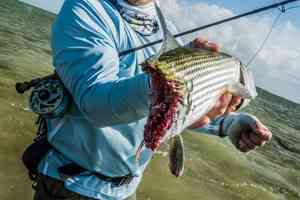
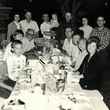

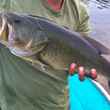


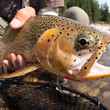



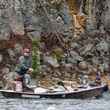
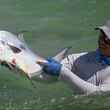

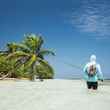

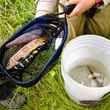
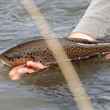



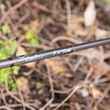




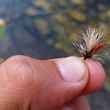
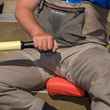
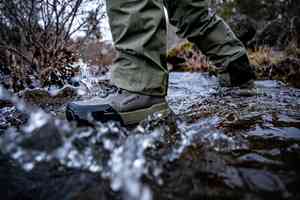


Comments